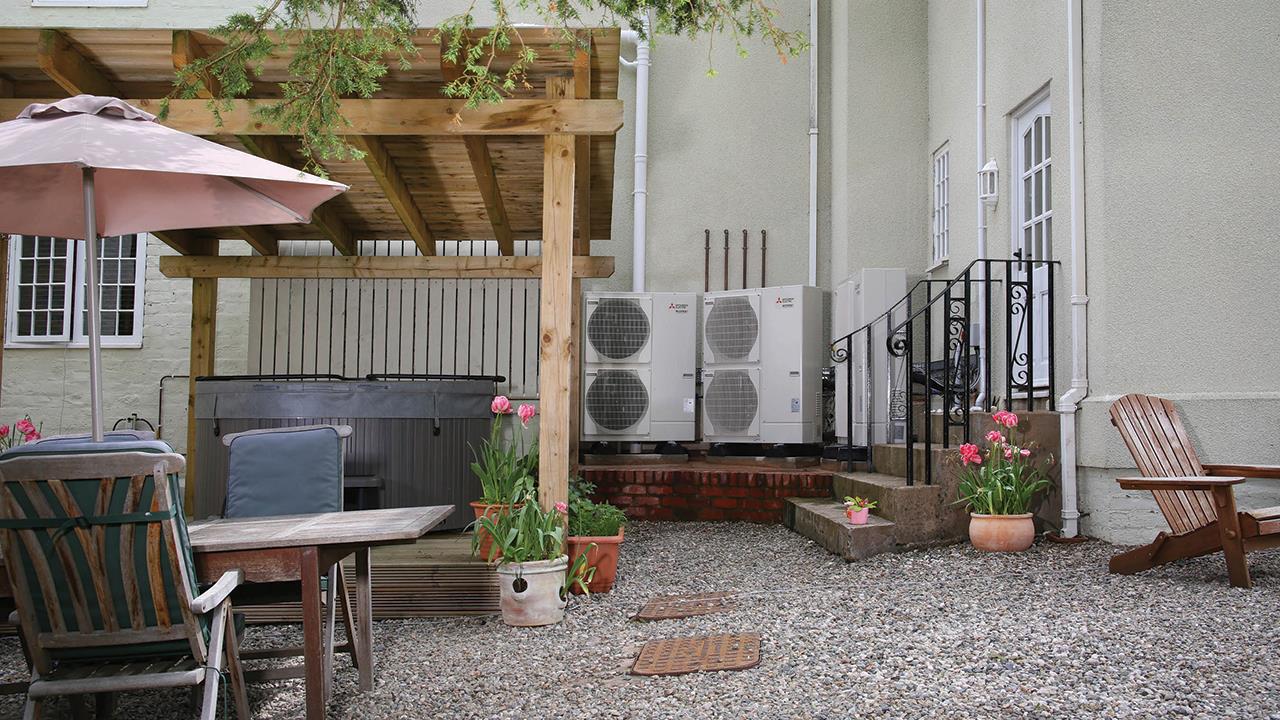

The UK government has set a target to reach net-zero carbon emissions by 2050, and ever since the pledge was made in 2019, the challenge of decarbonising heating and hot water production has been at the front of the conversation.
When trying to reduce the carbon impact of a building, heating and hot water are important factors to consider, as they make a significant contribution to that building’s emissions. In fact, buildings create over a third (38%) of the total carbon emissions in the UK. Luckily, the technology to heat buildings in a more energy efficient, renewable way is already available – in the form of heat pumps.
To encourage uptake of these types of renewable technologies, the government has tried various incentives – the most recent of which is the Boiler Upgrade Scheme (BUS), first announced last year.
What is the Boiler Upgrade Scheme?
Officially launched in April, the BUS aims to help with the government’s plan for the decarbonisation of buildings.
The scheme is expected to remain running for three years, and grants will be available from the end of May 2022.
Through the scheme, homeowners will be incentivised to choose more eco-friendly heating solutions, such as heat pumps and, in some circumstances, biomass boilers.
For those already considering replacing their old central heating boiler with a modern, renewable heating system, this could be a welcome cost-saving opportunity. The BUS will provide grant money to installers hired to work on households in England and Wales, which will go towards the costs of purchase and installation of these greener heating technologies.
The stated aim is to support low carbon heat technologies in up to 90,000 homes and buildings across England and Wales, as well as supporting up to 240,000 jobs in the industry across the UK by 2035.
Reducing the costs of low carbon heating
Building upon the understanding gained from the Clean Heat Grant scheme, the BUS will offer homeowners a simple and more cost effective way of switching to low carbon, renewable heating systems, as they replace their old boilers over the next three years.
The Boiler Upgrade Scheme is being brought in to help reduce the upfront costs of switching to heat pumps and other low carbon heating alternatives.
The government aims to make choosing low carbon heating solutions as affordable as conventional fossil fuel-dependent boilers, and the plan is for all new heating systems installed in UK homes from 2035 to be a low carbon option.
Who can qualify for the BUS?
The Boiler Upgrade Scheme applies to any home and small non-domestic property in England and Wales, with an installation capacity of up to 45kWth.
Successful applicants to the scheme will receive financial support, via their installers, for the installation of air source heat pumps, ground source heat pumps and, in some instances, biomass boilers where a heat pump is not a viable option.
In terms of financial support, the government is investing £450 million into the scheme, which will be managed and overseen by Ofgem. Heating system installation projects will receive a grant payment towards their installation costs. The grants offered will be:
Installer-led applications
There is an important role for installers to play in making sure the BUS is maximised, as applications for vouchers to cover the cost of heat pump installations will be led by installers.
Before the installation takes place, a homeowner must instruct an installer to carry out the work and apply for the BUS.
The installer must be MCS-certified and a member of a Consumer Code (such as HIES).
The installer will then apply to the voucher scheme and go through an eligibility check, which will include supplying information about the technology type, the property owner’s postcode, and contact details for verification.
The homeowner will be contacted by Ofgem to confirm their consent, and which will then assess the application and, if accepted, will issue a voucher to the installer to reclaim the installation costs.
Finally, the installer will complete the installation and then provide evidence of their work to redeem the voucher, at which point Ofgem will pay the installer for the amount associated with the grant.
Implementing more low carbon heat technology into the UKs housing stock will be essential for reaching net-zero and reducing the UK’s reliance on fossil fuels.
For a lasting solution that will benefit the environment and the residents of the UK, heat pumps are an ideal choice – and the Boiler Upgrade Scheme will play an important role in incentivising homeowners to make the change.
If you'd like to keep up-to-date with the latest developments in the heating and plumbing industry, why not subscribe to our weekly newsletters? Just click the button below and you can ensure all the latest industry news and new product information lands in your inbox every week.